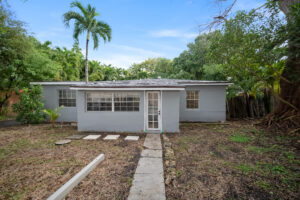Wholesaling real estate is a lucrative business strategy that allows investors to profit from the difference between the purchase price and the sale price of a property, without ever owning it. This guide will delve into the intricacies of wholesaling, outlining its benefits, risks, and step-by-step process.
 What is Wholesaling?
What is Wholesaling?
Wholesaling involves finding undervalued properties, securing them under contract, and then quickly assigning that contract to another investor (typically a rehabber or end buyer) for a fee. The wholesaler acts as a middleman, connecting motivated sellers with buyers seeking profitable deals.
Benefits of Wholesaling
- Low Capital Investment: Wholesaling requires minimal upfront capital, making it accessible to investors with limited funds.
- Quick Returns: Deals can be closed within weeks, generating rapid profits.
- Flexibility: Wholesalers can choose properties that fit their expertise and risk tolerance.
- Scalability: The business can be scaled by acquiring multiple properties simultaneously.
 Risks of Wholesaling
Risks of Wholesaling
- Finding Motivated Sellers: Sourcing distressed properties requires strong networking and negotiation skills.
- Due Diligence: Thorough inspections and research are crucial to avoid hidden problems and potential legal issues.
- Finding Suitable Buyers: Identifying reliable investors willing to close quickly is essential.
- Market Fluctuations: Economic downturns can impact property values and buyer demand.
Essential Skills for Wholesaling
- Negotiation: Mastering negotiation skills is crucial for securing deals and maximizing profits.
- Marketing: Effective marketing strategies are essential for reaching motivated sellers and potential buyers.
- Networking: Building strong relationships with real estate professionals and investors is vital for sourcing deals and finding buyers.
- Financial Analysis: Understanding property values, repair costs, and potential returns is essential for making informed decisions.
The Wholesaling Process
- Find a Property: The wholesaler identifies a property that’s often below market value. These properties might be in need of repair or belong to owners who are motivated to sell quickly.
- Negotiate a Deal: The wholesaler negotiates with the property owner to secure a contract to purchase the property at a specific price. The contract typically includes a clause allowing the wholesaler to assign the contract to another buyer.
- Find an End Buyer: The wholesaler then seeks out a buyer, usually an investor or a rehabber, who is willing to purchase the property. The end buyer is often interested in either fixing and flipping the property or holding it as a rental.
- Assign the Contract: The wholesaler assigns the purchase contract to the end buyer, charging them a fee for facilitating the deal. This fee is the wholesaler’s profit.
- Close the Deal: The end buyer closes on the property, and the wholesaler collects their fee, which is the difference between the original contract price and the price paid by the end buyer.
Example:
If a wholesaler finds a property for $150,000 and secures it under contract, they might then find an investor willing to buy it for $160,000. The wholesaler assigns the contract to the investor and earns a $10,000 fee at closing.
Conclusion
Wholesaling real estate offers a unique path to financial freedom, enabling investors to capitalize on market opportunities with minimal risk. By understanding the process, acquiring essential skills, and diligently navigating the challenges, aspiring wholesalers can build a successful and profitable business.
Ready to dive deeper? Visit Gold Homes LLC for more comprehensive guides and expert insights to kickstart your wholesaling journey!

